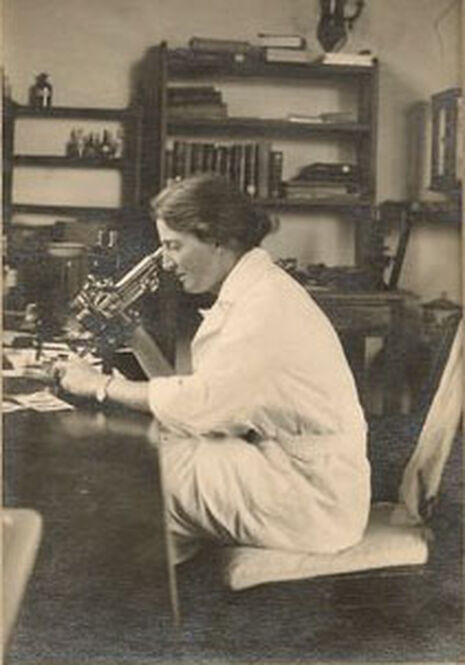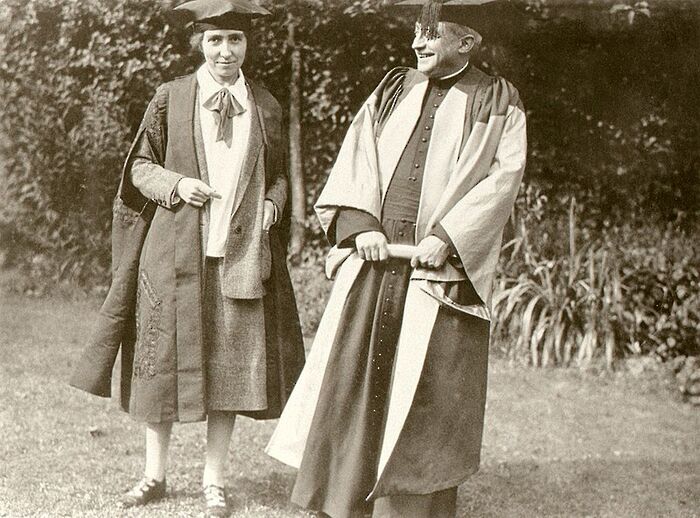This Week in Scientific History – Marmite as medicine
Love it or hate it, Marmite was the first scientifically proven prenatal supplement, thanks to the work of Newnham scientist Lucy Wills, born 131 years ago

Last Friday’s Google Doodle featured a Newnham scientist who changed the experiences of pregnant women worldwide: 10th May marked what would have been Lucy Wills’ 131st birthday. The doodle commemorated the contributions of her scientific work to the treatment of anaemia during pregnancy. This work would later become embedded in health guidance for pregnant women, with the recommendation of folic acid supplements.

In 1907, Wills went up to Newnham College and studied botany and geology as a Natural Sciences student. Upon finishing her course, and receiving a ‘certificate’ instead of a degree, Wills travelled to South Africa, before enrolling as a medical student back in England at the London School of Medicine for Women, the first medical school in Britain to train women. Once qualified, Wills began research studies in the Department of Pregnant Pathology, studying alongside Christine Pillman, a Girton student, where she would make ground-breaking contributions to healthcare in pregnancy.
The Royal Free Hospital had strong links with India, and Wills would have trained alongside Indian women students during her medical course. By 1928, Wills was studying the high incidences of anaemia – a disease of deficient red blood cells – amongst pregnant Indian women. Due to increased occurrence among less wealthy women, Wills postulated whether this specific type of anaemia was linked to nutrition.
Through her studies in India, including experiments on rats, Wills discovered that there was a missing nutritional factor in pregnant women’s diets that accounted for this anaemia. This was known as ‘the Wills Factor’, and could be found in liver extracts or – more efficiently due to its low cost – the yeast extract, Marmite.
Her discovery paved the way for the discovery of folic acid in 1941, which has now been shown not just to help mothers during pregnancy, but to prevent neural tube defects in babies, such as spina bifida.
This did not mark the end of Lucy Wills’ work as both a pioneering female scientist and a pioneer in the link between health and nutrition – upon returning from India at the outbreak of World War II, Wills led the Royal Free’s Pathology Department, at a time where women were still not awarded degrees at Cambridge. She later established the Haematology Department. Upon retirement she travelled worldwide, studying the impact of nutrition on health, and served as Labour borough councillor. All in all, Lucy Wills’ birthday, and her concern for social issues and women’s health, is well worth commemorating.
 Comment / Plastic pubs: the problem with Cambridge alehouses 5 January 2026
Comment / Plastic pubs: the problem with Cambridge alehouses 5 January 2026 News / Cambridge businesses concerned infrastructure delays will hurt growth5 January 2026
News / Cambridge businesses concerned infrastructure delays will hurt growth5 January 2026 News / New movement ‘Cambridge is Chopped’ launched to fight against hate crime7 January 2026
News / New movement ‘Cambridge is Chopped’ launched to fight against hate crime7 January 2026 News / AstraZeneca sues for £32 million over faulty construction at Cambridge Campus31 December 2025
News / AstraZeneca sues for £32 million over faulty construction at Cambridge Campus31 December 2025 Interviews / You don’t need to peak at Cambridge, says Robin Harding31 December 2025
Interviews / You don’t need to peak at Cambridge, says Robin Harding31 December 2025










